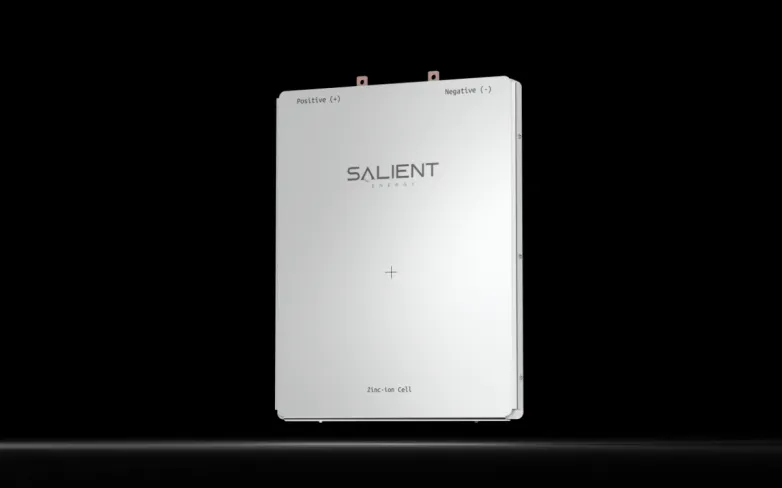Zinc-ion battery for residential applications
- Established by Canadian start-up Salient Energy, the zinc-ion battery has actually a rated capacity of 60 Ah, a nominal voltage of 1.3 V, and a volumetric energy density of 100 Wh/L. The tool measures 26cmx24cmx1.2 cm and weighs in at 1.3 kg

Canada-based Salient Energy has actually developed a zinc-ion battery for stationary energy storage space in residential applications.
" The batteries are presently produced at our facility in Dartmouth, Nova Scotia, Canada, with a capacity of 100 batteries per month," a representative from the firm informed pv publication. "Presently, we remain in the procedure of ramping up manufacturing at this exact same facility to the pilot scale to sustain pilot projects in the residential space. We are likewise establishing our very first gigafactory plant layout, which will be situated in the USA or Canada."
According to the producer, its zinc-ion battery acts similarly as existing lithium-ion storage systems. "The battery can respond nearly immediately to shop or provide clean power as required. Considering that it has similar power capabilities to Li-ion, it is likewise fit for short-duration storage space, which is a term for energy storage systems that can completely bill or release in just a few hours," the agent discussed.
" Typically, zinc-ion energy storage systems work the same as lithium-ion, with the essential distinctions in between both remaining in expense, security, as well as supply chain wealth instead of performance. Additionally, its water-based chemistry gets rid of the danger of fire, making it a secure option to existing systems."
The battery measures 26cmx24cmx1.2 cm and also weighs in at 1.3 kg. Its rated capacity is 60 Ah and also the nominal voltage is 1.3 V. The volumetric energy density is 100 Wh/L and the gravimetric energy density is 60 Wh/kg. The shelf life for 2 weeks is 100% and that for 6 months is 95%.
" Our initial emphasis gets on the residential market, especially starting with targeting homebuilders who are creating net-zero residences and areas," the representative continued. "We are beginning with residential as a result of how crucial safety and security is to this market-- we know that our zero fire-risk systems will greatly streamline setup and assurance to property owners. We plan on increasing from residential into commercial energy storage and also utility scale systems constructed for the grid."
Zinc-ion has actually dragged other storage space modern technologies because of challenges in controlling side reactions that both limit reversible billing at the anode and also cause the cathode to fall apart. Zinc-ion, nevertheless, still has the potential forever energy storage space performance out of cheap, abundant materials.
According to a current study from the University of Bremen in Germany, the two main obstacles that need to relapse for zinc-ion batteries in future research are the increase of the specific energy of the full Zn-ion cell and the avoidance of the parasitic hydrogen development reaction taking place throughout the Zn electrodeposition step.
Also read

